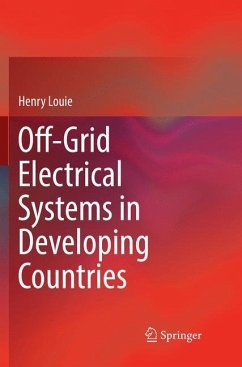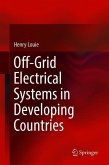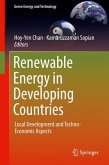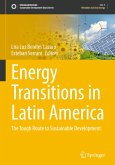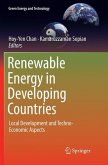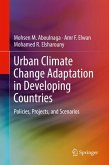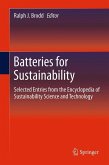This book provides students and practicing engineers with a comprehensive guide to off-grid electrification: from microgrids and energy kiosks to solar home systems and solar lanterns. As the off-grid electrification industry grows, universities are starting and expanding courses and programs in humanitarian engineering and appropriate technology. However, there is no textbook that serves this growing market. This book fills that gap by providing a technical foundation of off-grid electrical systems, putting into context the technical aspects for developing countries, and discussing best practices by utilizing real-world data.
Chapters expertly integrate the technical aspects of off-grid systems with lessons learned from industry-practitioners taking a pragmatic, data-driven perspective. A variety of off-grid systems and technologies are discussed, including solar, wind, hydro, generator sets, biomass systems, battery storage and converters. Realistic examples, case studies and practical considerations from actual systems highlight the interaction of off-grid systems with the economic, environmental, social and broader development aspects of rural electrification. Whole chapters are dedicated to the operation and control of mini-grids, load and resource estimation, and design of off-grid systems.
Special topics focused on electricity access in developing countries are included, such as energy use in rural communities, technical and economic considerations of grid extension, electricity theft, metering, and best practices devoted to common problems.
Each chapter is instructor friendly and contains illustrative examples and problems that reinforce key concepts. Complex, open-ended design problems throughout the book challenge the reader to think critically and deeply. The book is appropriate for use in advanced undergraduate and graduate courses related to electrical and energy engineering, humanitarian engineering, andappropriate technology.
Provides a technical foundation of off-grid electrical systems;
Contextualizes the technical aspects for developing countries;
Captures the current and state-of-the art in this rapidly developing field.
Chapters expertly integrate the technical aspects of off-grid systems with lessons learned from industry-practitioners taking a pragmatic, data-driven perspective. A variety of off-grid systems and technologies are discussed, including solar, wind, hydro, generator sets, biomass systems, battery storage and converters. Realistic examples, case studies and practical considerations from actual systems highlight the interaction of off-grid systems with the economic, environmental, social and broader development aspects of rural electrification. Whole chapters are dedicated to the operation and control of mini-grids, load and resource estimation, and design of off-grid systems.
Special topics focused on electricity access in developing countries are included, such as energy use in rural communities, technical and economic considerations of grid extension, electricity theft, metering, and best practices devoted to common problems.
Each chapter is instructor friendly and contains illustrative examples and problems that reinforce key concepts. Complex, open-ended design problems throughout the book challenge the reader to think critically and deeply. The book is appropriate for use in advanced undergraduate and graduate courses related to electrical and energy engineering, humanitarian engineering, andappropriate technology.
Provides a technical foundation of off-grid electrical systems;
Contextualizes the technical aspects for developing countries;
Captures the current and state-of-the art in this rapidly developing field.

